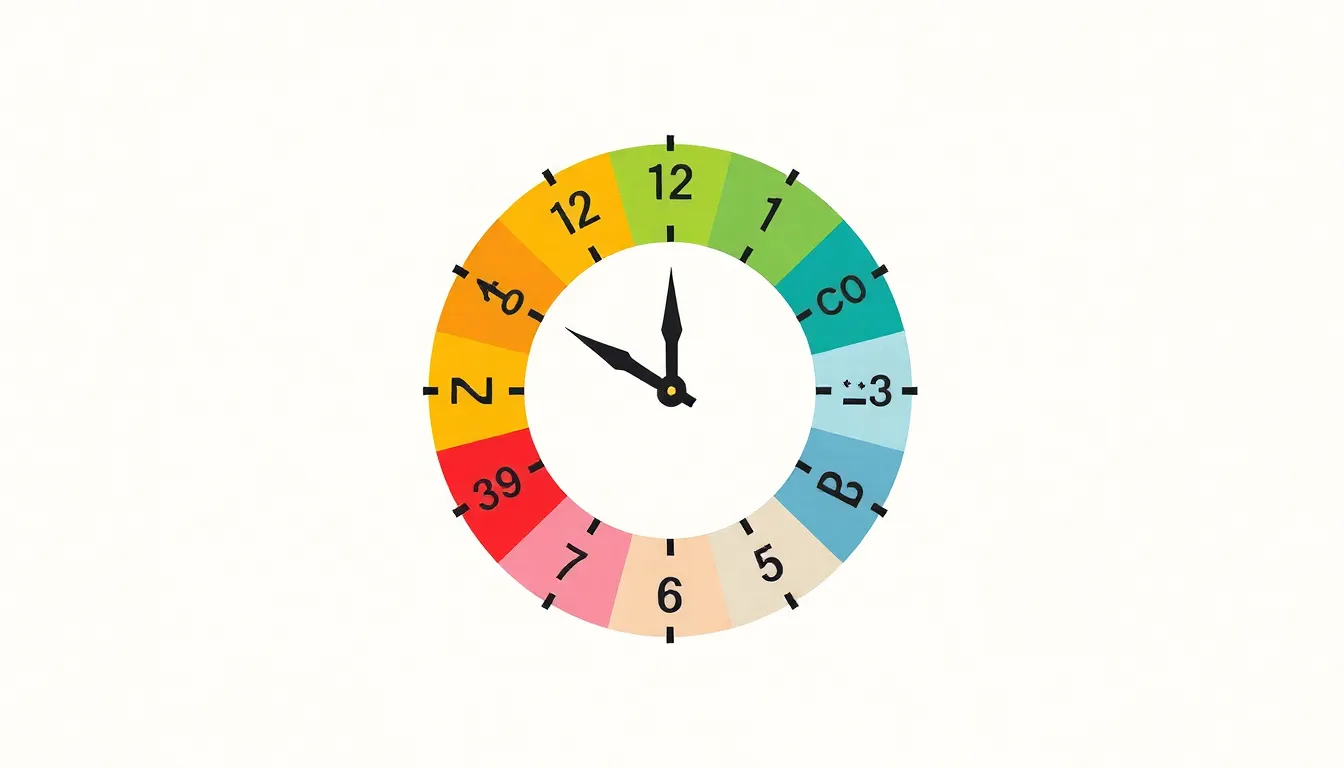Time’s a tricky little devil, isn’t it? One moment you’re sipping coffee, and the next, you’re wondering how many minutes are in 24 hours. Spoiler alert: it’s more than you think! If you’ve ever found yourself lost in thought while staring at the clock, you’re not alone.
Understanding how many minutes fit into a day can help with everything from planning your next Netflix binge to figuring out how long you can procrastinate before tackling that to-do list. So, let’s dive into the math behind those 1,440 minutes that make up a full day. Who knew numbers could be this entertaining?
Table of Contents
ToggleUnderstanding Time Measurements
Time measurements play a crucial role in daily life. Knowing how many minutes are in various time units simplifies scheduling and planning.
Basics of Time Units
Time is divided into several units. The hour comprises 60 minutes. A day consists of 24 hours, resulting in a total of 1,440 minutes per day. Each minute contains 60 seconds, making the second the smallest common time unit used for daily activities. Individuals rely on these units to organize their routines, track appointments, and manage tasks efficiently.
Conversion Factors
Conversion factors are essential for changing time units. To convert hours to minutes, multiply the number of hours by 60. For example, 2 hours equal 120 minutes. In contrast, to convert minutes into hours, divide the total minutes by 60. For instance, 150 minutes translate into 2.5 hours. Understanding these factors helps individuals effortlessly navigate various time calculations in everyday scenarios.
Calculating Minutes in 24 Hours

Understanding the calculation of minutes in 24 hours provides clarity in daily planning. Each hour consists of 60 minutes, and with 24 hours in a day, the total is straightforward.
Simple Calculation Method
To calculate the total minutes in a day, multiply the number of hours by the number of minutes per hour. Thus, 24 hours multiplied by 60 minutes equals 1,440 minutes. This simple multiplication confirms the number of minutes in a full day. Practicing this calculation helps with time management, ensuring accurate scheduling for events or tasks throughout the day.
Visual Representations
Visual representations simplify the concept of time. A pie chart displaying 24 segments, each representing an hour, highlights the importance of each hour within the complete day. Another effective method includes a bar graph where each bar equals 60 minutes. Both these visuals enable quick comprehension of how minutes accumulate over time, aiding in understanding daily routines and schedules.
Real-Life Applications
Understanding that there are 1,440 minutes in a day proves essential in managing daily tasks effectively. Effective time management allows individuals to prioritize responsibilities and allocate time slots for both work and leisure activities.
Importance of Time Management
Time management significantly impacts productivity and overall well-being. Effectively allocating the 1,440 minutes each day can enhance work efficiency and reduce stress. Setting specific time limits for tasks encourages focus, preventing procrastination. Scheduling breaks ensures rejuvenation, sustaining energy levels throughout the day. Individuals can also use tools like calendars and planners to keep track of commitments and deadlines.
Everyday Usage
Many individuals use the concept of minutes in various daily activities. When scheduling meetings, planning meals, or exercising, one often thinks in terms of minutes. For instance, a 30-minute workout becomes manageable when placed within the larger context of the day. Likewise, cooking times often rely on specific minute increments. Incorporating minutes into daily routines aids in visualizing time usage, leading to better decision-making. Understanding the total number of minutes in a day enriches time-related conversations and enhances goal setting.
Fun Facts About Time
Understanding time extends beyond simple calculations. Timekeeping’s evolution plays a significant role in how people organize daily activities.
Historical Context of Timekeeping
Ancient civilizations, including the Egyptians, established one of the earliest systems of timekeeping using sundials. Measuring daylight hours marked a crucial development in tracking time. The introduction of mechanical clocks in the Middle Ages changed how societies managed time. By the 14th century, these devices enabled more precise timekeeping, leading to scheduled events and standardization. The 24-hour format emerged in the 19th century, further refining time measurements. Ultimately, advancements in technology shaped contemporary timekeeping methods, including atomic clocks, which now define the second.
Interesting Time-Related Records
Numerous records showcase unique aspects of time. For instance, the longest recorded time a human has slept continuously lasts around 11 days. Scientists confirmed this feat in 1959, emphasizing the extremes of human endurance. Another record involves the world’s fastest clock, with a precision of one-second variations over 15 billion years. Additionally, time dilation effects from high-speed travel have been documented, where astronauts aged slower than those on Earth. Events like leap seconds contribute to maintaining accurate timekeeping, ensuring clocks accurately reflect Earth’s rotation despite irregularities. This showcases how time measurement continues to evolve and intrigue people globally.
Understanding that there are 1,440 minutes in a day can significantly enhance how individuals manage their time. This knowledge empowers people to prioritize tasks and allocate time effectively for both work and leisure. By grasping the importance of each minute, individuals can improve their productivity and well-being.
Time management isn’t just about knowing the numbers; it’s about making those minutes count. Whether scheduling meetings or planning personal activities, recognizing the value of time can lead to better decision-making. As society continues to evolve in its understanding of time, the ability to navigate daily routines with confidence becomes increasingly vital. Embracing this knowledge can transform how one approaches each day.




